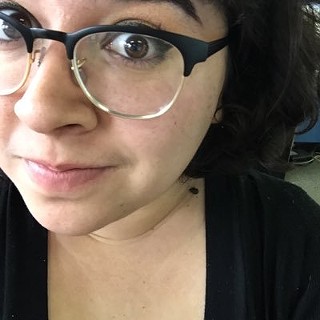"Most of the black femmes I know have been assaulted in some way," Javetta Laster says, reflecting on nights spent in Tucson's most prevalent queer bars.
Laster and her partner, Bev Tumelo, say Tucson doesn't have places for queer people of color to safely, peacefully commune. The problem? The local LGBTQ social scene is built by and for a singular portion of the community.
Tumelo puts it simply: "Our LGBTQ landscapes here are very white."
"People who gather at those places are mostly white folks who have the means," Tumelo says, noting going out can be isolating. "I can say, for myself as someone who is genderqueer and black, that sometimes it's really hard to be in those spaces and be one of four, or one of two, or sometimes be the only one."
They get by socializing at friend's houses—but that doesn't do much for other people in the same situation. It doesn't do anything for building community.
"Those places feel affirming, but then there's only 15 of us and there's a sense of there are so many other folks in Tucson who are having the same problems we're having and don't see themselves reflected in the LGBT landscapes here," Tumelo said, making the point that there aren't public places for built for the city's queer people of color. "It's just not there. I've been looking, I've been looking, I've been looking. Eventually it's just like, 'I've got to do something.'"
Inspiration struck during a trip to Los Angeles.
Laster, a wordsmith, performed at 2014's Queer Punk Fest—an event in Southern California that proclaimed it was "born out of the need for queer punks and radical queers to carve out a space in a heavily white-macho radical/anarchist-punk scene."
Laster and Tumelo identified with that need. Driving home, they discussed bringing a similar conference to Tucson. It seems natural they would be the duo to do it: They also started AFRIKWEER, a local movement that celebrates and documents the variety in experience of being black and queer. Broadening their reach, they decided to create QTPOC Fest—an event made for all queer and trans people of color.
"We want to have queer and trans people of color teaching, but we also want to fill the room with queer, trans people of color so that it's a community process all around and it's not coming from this savior position," Laster says, going on to stress the importance of people having a voice for their own stories. Anecdotally, she remembers attending a local panel about black life, sexuality and movements in Ferguson, Missouri—and how disappointed she was to discover that the person leading the panel was white. "This is a fest that celebrates queer and trans people of color, that shows queer, trans people of color in—not leadership roles, but in community."
Katrina Martinez, a friend of the couple, wanted to help the moment she heard what Tumelo and Laster were planning. Calling Tucson's gay bars unsafe, violent and largely white, she stresses the importance of offering a less intense, more welcoming environment.
"We just needed to create our own space, and I felt really passionate about that—that it came from a new perspective," Martinez said.
Now in its second year, the fest will span two days. Friday, Oct. 14, is day one, featuring an evening mix and mingle open only to queer and trans people of color. Day two (Saturday, Oct. 15) will feature activities as diverse as the people the festival is meant to serve, with workshops ranging from queer financial planning to the basics of stenciling and finding joy through creative writing. The workshops will be followed by seven hours of hip hop, belly dancing and poetry. Saturday's festivities are open to, as Martinez describes it, "everybody who would be comfortable in that space."
Marcos Guerrero Trujillo is also helping organize QTPOC Fest. Trujillo was originally drawn in by the performance side of the event, but says a marginalized community such as theirs stands to gain so much by coming together and sharing their skills.
"That's really about shifting the power of how we understand knowledge and how we think about who has the ability or 'credentials' to teach people things," Trujillo said, echoing Laster's desire to give the community a space to share their experiences and expertise with each other. "As QTPOC people there's skills, perspective and knowledge we have that may be the result of professional development—but might also be personal development, or might be cultural, information we learned from our families, from our elders."
There's a lot of energy going into making sure QTPOC event is as accessible as possible—it's totally free, volunteers checked out the venue ahead of time to see where wheelchair ramps needed to be built, and they're providing food.
"You never know when that might end up being a meal for somebody or a meal for the day where they don't have to spend their last $10," Laster says.
Above all, the QTPOC team is eager to see a community come together. Laster says she is most looking forward to the first night of the fest—when she can just relax and spend time with the people who need events like this the most.
"Anytime we're able to come together outside of white supremacy's gaze is a very radical, spiritual and healing space." Laster said. "Anytime we commune together, I think it's a sacred space."










